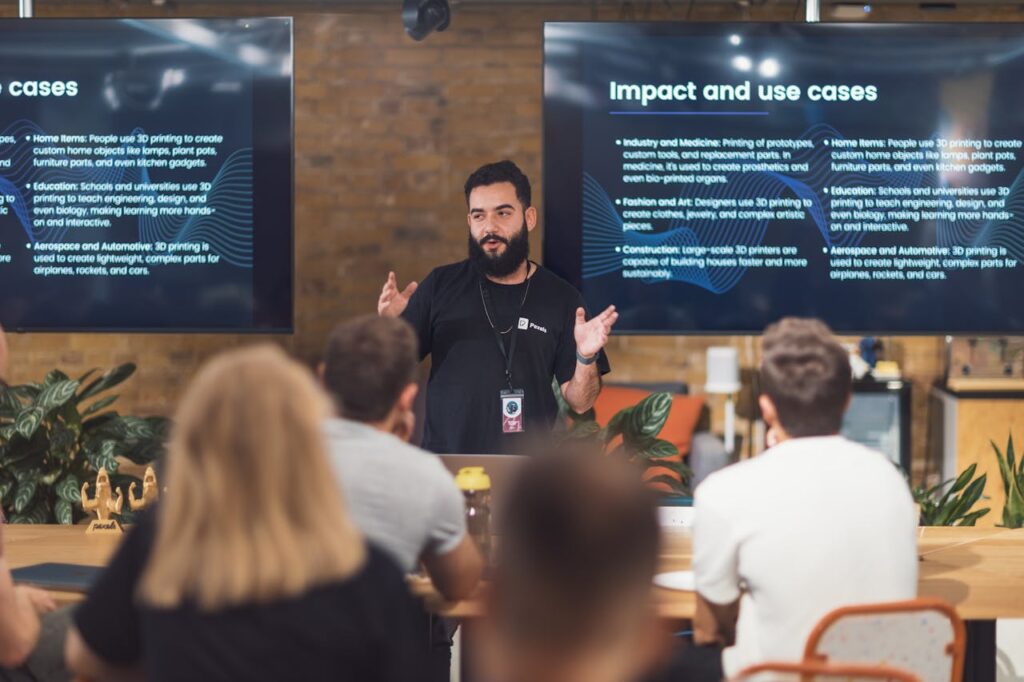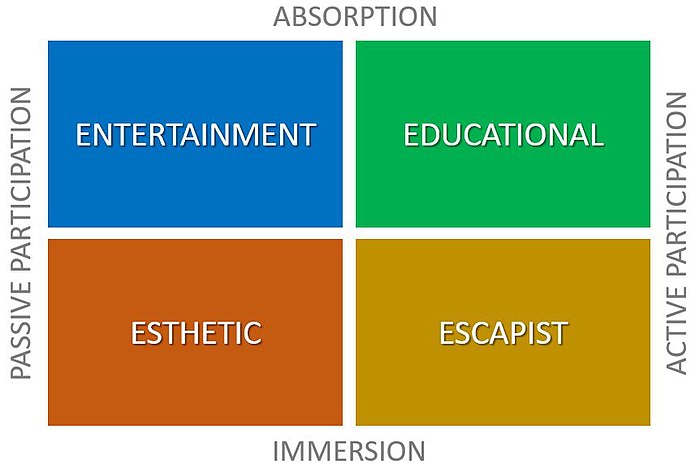The Rise Of High Ticket Experience Creators In The AI Era

The rise of artificial intelligence has paradoxically increased our hunger for authentic human experiences.
The nature of being a creator is changing fast. A recent announcement by Meta confirms that they plan to flood Facebook and Instagram with AI-generated creator bots that exist on the platform the same way as human users do — the nature of being a creator is changing.
Similarly, Google’s AI overviews and recent algorithmic updates are decimating many bloggers as their artificial intelligence increasingly gives people answers instantly so that people searching don’t have to click through to websites.
Meta, Google and other tech companies are fervently vacuuming up all the content they can feed their AI bots on the web and social media to mimic people’s creativity, thinking patterns and communication styles with AI.
Suchir Balaji, a former OpenAI engineer and whistleblower who helped train the artificial intelligence systems behind ChatGPT claimed that over 90% of the data used to train ChatGPT was from copyrighted material.
Shortly before he was mysteriously found dead, he said in an interview that “it doesn’t feel right to be training on people’s data and then competing with them in the marketplace,” but this is what is happening.
It is a strange time to be a human being and a creator. So, where do all these monumental changes leave us creators in 2025?
As digital interactions become flooded by AI-generated content, conversations, videos and images, there’s a growing thirst for artfully crafted, meaningful experiences that foster human connection and build community and a sense of belong.
That’s where experience creators come in.
What Is An Experience Creator?

In the 1998 article Welcome To The Experience Economy in the Harvard Business Review, B. Joseph Pine II and James H. Gilmore described the new economy following the agrarian economy, the industrial economy and the most recent service economy as the “experience economy”.
They defined the experience economy as the sale of memorable experiences to customers. Today, their predictions about the experience economy are becoming real with the growing demand for experience creators.
Experience creators are professionals who design memorable moments that engage multiple senses, create an emotional connection and build meaningful community.
They are becoming highly in demand across many industries from retail, tourism and hospitality to entertainment and education.
These creators combine human psychology, design thinking and brand storytelling to craft group experiences that make people feel more alive and connected.
They might design an immersive experiential learning tour, create a pop-up retail experience, lead transformational retreats or develop a corporate team-building adventure.
The AI Catalyst
AI hasn’t diminished the experience economy — it has supercharged it.
As routine tasks become automated, consumers increasingly seek out unique, human-centric experiences that AI cannot replicate.
Eventbrite reports that 78% of millennials prefer spending money on experiences over material goods. This shift has only accelerated with the mainstream adoption of AI tools.
Here are some other interesting facts about the meteoric rise of the experience economy:
1. 55% of millennials say they’re spending more on events and live experiences than ever before.
2. The global experience economy is projected to reach $12 trillion by 2028, growing at a CAGR of 26%.
3. The global travel experience market could now be worth more than $1 trillion and soon grow to 3 trillion.
4. 41% of travellers prioritize “transformative experiences” that challenge the norms over traditional sightseeing. Adventure tourism is growing at 15.2% CAGR, faster than general tourism (6.4%).
5. Global wellness tourism market: $436.1 billion (2020), projected to reach $1.1 trillion by 2025. Mindfulness retreats grew 300% between 2019-2023. Digital detox experiences increased 165% post-pandemic. Eco-wellness resorts are showing 45% annual growth.
6. There’s a growing interest in wellness and mental health and adventure-wellness experiences. 89% of participants report improved mental health after wellness retreats.
Digital Fatigue Drives Immersive Physical Experiences
Screen fatigue and digital overwhelm have created a countertrend: people crave tangible, physical experiences where they can unplug from technology and connect with real human beings.
Experience creators are responding with multi-sensory installations, interactive art exhibits, nature-based tourism and community-focused events.
Many of today’s consumers find traditional education and many forms of non-interactive entertainment boring and they crave unique experiences that hold their attention and help them connect with other people on well-designed adventures and experiential learning journeys.
Successful experience creators are realizing that while AI can handle a lot of the logistics, planning and data analysis, the human touch in experience design remains irreplaceable.
What Experience Do You Want To Create?
Major brands are investing heavily in experiential marketing.
Apple’s retail stores aren’t just shops — they’re community hubs offering workshops and events. Nike’s House of Innovation stores feature personalized shopping experiences that blend digital convenience with physical engagement.
Experience creators are leveraging AI to enhance, not replace, human experiences. AI handles personalization, market demand analysis, and helps simplify their marketing, allowing creators to focus on emotional resonance, brand storytelling and community building.
As AI continues to evolve, the demand for unique, human-crafted experiences will grow. Experience creators who can harness AI while maintaining authentic human connections will thrive.
Industries from healthcare to education are recognizing the value of designed experiences. Hospitals are reimagining patient experiences, while schools are creating more immersive learning environments.
However, with the barriers to entry into developing an experience creator business dropping many people are choosing to go the entrepreneurial route.
In an increasingly automated world, those who craft transformative human experiences become among the highest paid professionals.
Futurist Rolf Jensen, formerly of the prestigious Copenhagen Institute of Futures Studies emphasizes the role of storytelling for experience creators in his famous essay The Dream Society:
“The highest-paid person in the first half of this century will be the storyteller. All professionals, including advertisers, teachers, entrepreneurs, politicians, athletes and religious leaders, will be valued for their ability to create stories that will captivate their audiences.”
Sell Your High Ticket Experience
I built Social Creators to make it easy to sell high ticket experiences such as group coaching, workshops and retreats.
We want to empower experience creators to build sustainable businesses that build powerful communities around shared experiences and group storytelling.
As you can see, the experience economy isn’t just surviving the AI revolution — it’s thriving because of it. People want to pay for high ticket experiences that help them meet likeminded people, collaborate with them and get help with the implementation of habits, strategies and tactics within a community.
As AI-driven automation handles routine tasks, the value of human-designed, emotionally resonant experiences grows exponentially.
We believe that experience creators are the architects of this new economy and that those who create the sense of meaning, connection and community that AI can’t replicate will be the highest paid people of the 21st century.

